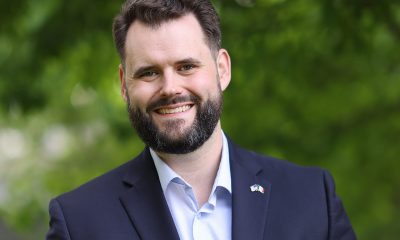District of Columbia
Number of D.C. shelters serving LGBTQ homeless is growing
Existing groups step in to fill gaps created by Casa Ruby shutdown
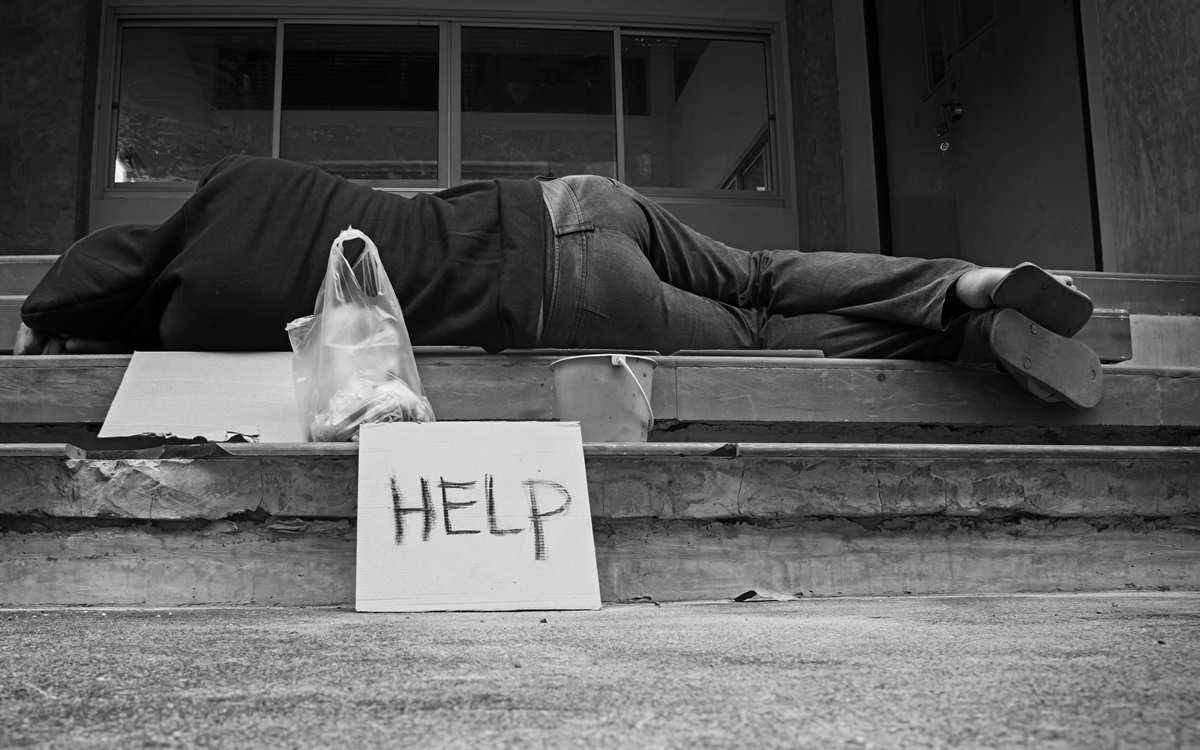
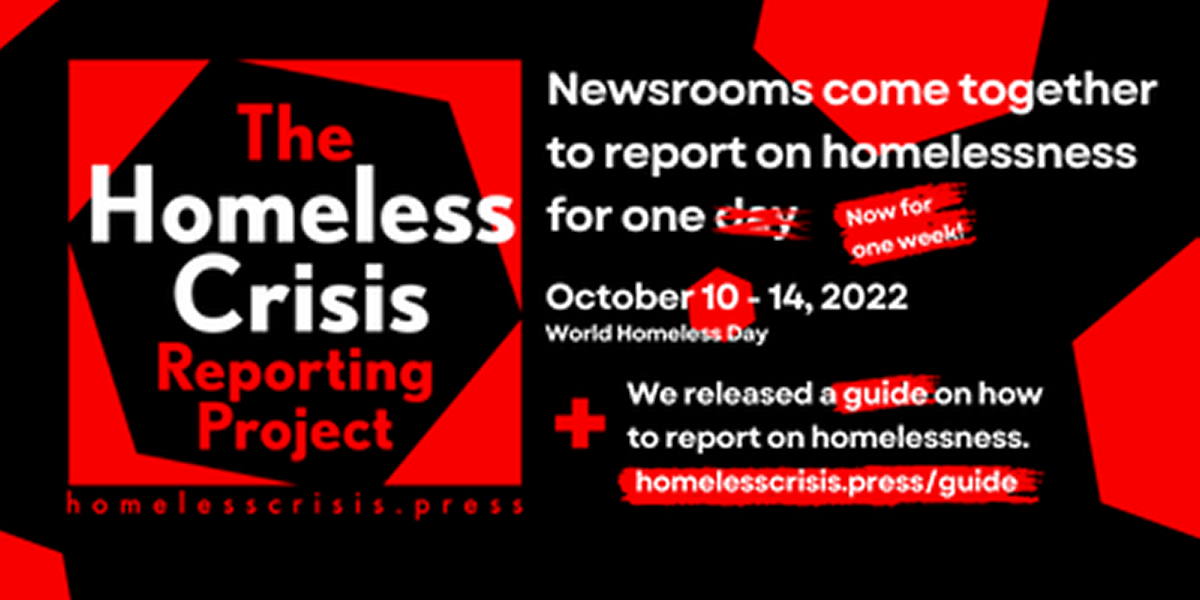
The Wanda Alston Foundation states on its website that it made history in 2008 when it opened D.C.’s first transitional housing program solely dedicated to LGBTQ+ youth ages 18 to 24 experiencing homelessness.
As part of that program, the foundation, named after the late and beloved LGBTQ rights advocate Wanda Alston, has since opened two more LGBTQ youth homeless facilities, including one that opened last year that also made history.
Referred to as Renita’s, it’s a two-bed, two-year transitional housing program believed to be the first known such facility focused specifically on serving homeless transgender men of color.
In January 2017, the D.C. LGBTQ youth advocacy organization SMYAL opened the first of five housing sites it currently operates that can serve up to 66 LGBTQ youth experiencing homelessness.
Like the Alston Foundation, SMYAL states on its website that it provides a wide range of services for its LGBTQ youth residents in addition to a safe and stable shelter, including food, case management services, mental health counseling, crisis intervention, and employment related skills development.
The two groups also have designated at least one of their housing facilities to offer their residents extended transitional housing for up to six years.
Beginning in 2012, Casa Ruby, under the direction of its founder Ruby Corado, evolved into the city’s largest LGBTQ specific emergency shelter facility, operating what it said was a greater than 50-bed shelter program at seven locations. The program provided services in both English and Spanish to youth and some adults. It had a special outreach to transgender women of color in need of housing.
But due to a financial crisis brought about by the loss of hundreds of thousands of dollars in D.C. government grants and which remains under investigation by the Office of the D.C. Attorney General, Casa Ruby curtailed and eventually shut down all of its operations during a year-long period that culminated this past July. In court documents filed as part of a civil complaint filed against Casa Ruby, the AG’s office said, among other things, the loss of city funding was brought about by Casa Ruby’s failure to provide required finance reports verifying how the money was spent. Corado disputes that allegation.
At the request of the AG’s office, a D.C. Superior Court judge has placed Casa Ruby in receivership and appointed the Wanda Alston Foundation as the receiver.
In a report released last month, the Alston Foundation recommended that Casa Ruby be dissolved, saying its debts far exceed any remaining assets. The judge has yet to hand down a ruling on whether to dissolve the once highly regarded LGBTQ organization or take steps to determine if it can be revived.
Since its shutdown, other local organizations, including SMYAL, have taken steps to provide support for the Casa Ruby clients impacted by the shutdown.
“Following the closure of Casa Ruby, SMYAL has been working with our partners at other housing providers, the D.C. Department of Human Services, and the Mayor’s Office of LGBTQ Affairs to identify and fill gaps in services,” SMYAL spokesperson Hancie Stokes told the Washington Blade.
“Most directly, SMYAL has launched a new Latinx Street Outreach program that is designed to support Spanish-speaking LGBTQ youth who may have been connected to services or in need of new services,” Stokes said in an email. “We started piloting this program just last month and have already begun working with 22 Spanish-speaking youth to connect or reconnect them with services, including housing, and assist them with obtaining vital documents, and navigating legal procedures,” she said.
In September 2021, the D.C. Department of Human Services informed Casa Ruby it would not renew its main grant that funded the Casa Ruby homeless shelter program. At that time, DHS announced it had awarded a grant for a new D.C. LGBTQ youth homeless shelter to Covenant House, a nonprofit group that provides homeless youth services nationwide. The Washington Post reported the grant was for $648,000,
Covenant House announced it opened the new 24-bed LGBTQ youth shelter, called Shine, on Sept. 30, 2021, in the city’s Deanwood neighborhood in Northeast D.C. Although other non-LGBTQ organizations currently provide homeless-related services, including shelter accommodations, for LGBTQ youth, the Covenant House Shine facility is believed to be the city’s first LGBTQ shelter operated by a non-LGBTQ specific organization.
“Most LGBTQ+ young people access services from non-LGBTQ-specific agencies,” Covenant House states on its D.C. website. “At Covenant House, we’re proud of the diversity of the youth in our houses and the staff who welcome and serve them,” the statement says. “All young people facing homelessness are welcome here and are embraced with unconditional love, absolute respect, and relentless support.”
With nearly all LGBTQ specific homeless facilities in D.C. focusing on youth, the city’s first official shelter for LGBTQ adults opened its doors on July 14 of this year following a ribbon-cutting ceremony led by D.C. Mayor Muriel Bowser.
The 40-bed shelter, located in the city’s Marshall Heights neighborhood at 400 50th St., S.E, will accommodate unaccompanied adults 25 years of age and older, according to a statement released by the mayor’s office.
“The shelter will provide trauma-informed case management services including mental health, substance abuse treatment, medical, and victims’ services,” the statement says.
“We are proud to cut the ribbon on a shelter that embodies our D.C. values as well as our commitment to making homelessness rare, brief, and nonrecurring,” Bowser said at the ceremony. “With this new facility, we’re breaking down barriers to shelter, building community, connecting residents with the trauma-informed services they need to live healthy, happy lives,” the mayor said.
Under city funding, the new LGBTQ adult shelter is being operated by the Community Partnership for the Prevention of Homelessness (TCP), the statement from the mayor’s office says. It says two other local nonprofit groups, Coalition for the Homeless and the KBEC Group, Inc., will assist TCP in operating the shelter.
At least two other non-LGBTQ locally based organizations – the Latin American Youth Center (LAYC) and Sasha Bruce Youthwork – also provide services for homeless LGBTQ youth, including housing-related services, the two groups state on their websites.
Stokes, the SMYAL spokesperson, said the non-LGBTQ organizations operating homeless programs for LGBTQ people are meeting a need for increased services. But she said additional training may be needed to ensure that all organizations can fully meet the specific needs of their LGBTQ clients.
“There is still a lot of work that needs to be done in order to ensure LGBTQ youth who are matched with non-LGBTQ-specific providers are affirmed, welcomed, and supported fully,” Stokes said.
“SMYAL and our partners have been working to increase cultural competency among all housing providers, but there is a continued need to invest in training providers to build capacity to directly serve LGBTQ youth, as well as creating solid foundations for additional providers who are accessible to LGBTQ youth,” she said.
The 2022 Point-in-Count findings show a continued trend in decreasing numbers of homeless people in D.C. Mayor Muriel Bowser pointed out at the time the results were released in April that the total homeless count of 4,410 was down from 8,350 homeless people counted in 2016.
The mayor noted that the 2022 findings show single adult homelessness decreased 12 percent from the 2021 count and family homelessness was down by 14 percent from 2021.
District of Columbia
D.C.’s annual MLK Peace Walk and Parade set for Jan. 19
LGBTQ participants expected to join mayor’s contingent
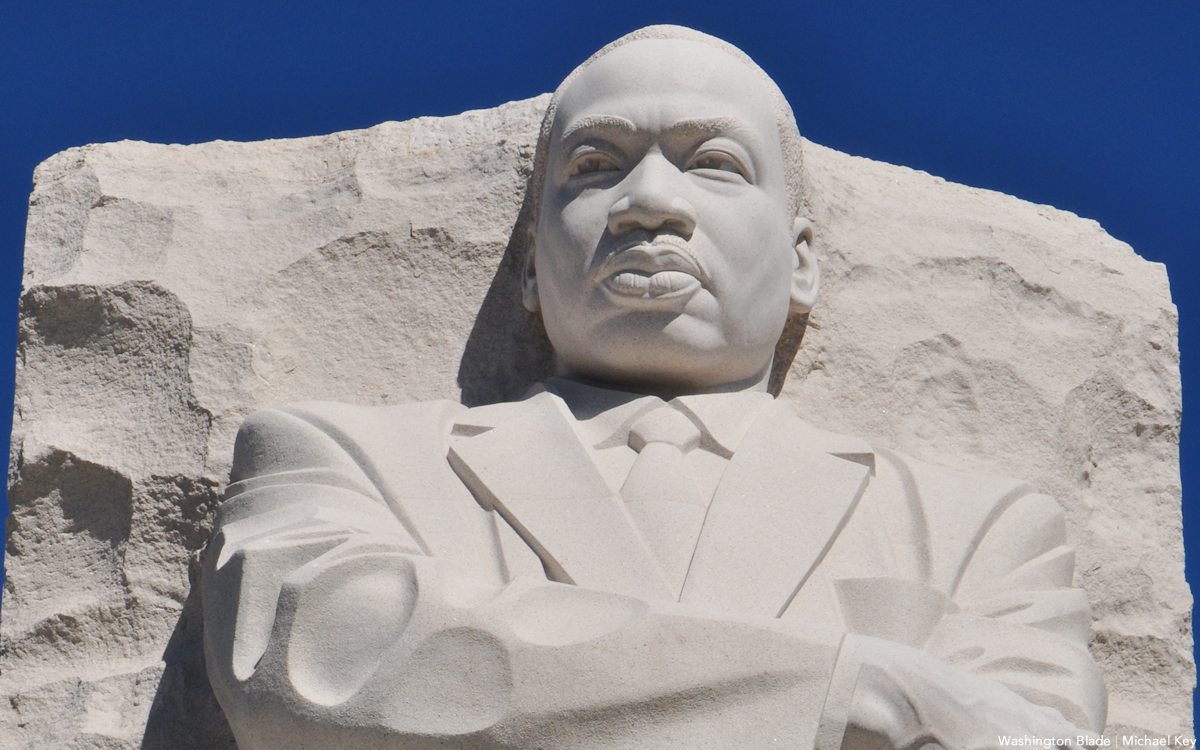
Similar to past years, members of the LGBTQ community were expected to participate in D.C.’s 21st annual Martin Luther King Jr. Day Peace Walk and Parade scheduled to take place Monday, Jan. 19.
Organizers announced this year’s Peace Walk, which takes place ahead of the parade, was scheduled to begin at 10:30 a.m. at the site of a Peace Rally set to begin at 9:30 a.m. at the intersection of Firth Sterling Avenue and Sumner Road, S.E., a short distance from Martin Luther King Jr. Avenue.
The Peace Walk and the parade, which is scheduled to begin at 11 a.m. at the same location, will each travel along Martin Luther King Jr. Avenue a little over a half mile to Marion Barry Avenue near the 11th Street Bridge where they will end.
Japer Bowles, director of D.C. Mayor Muriel Bowser’s Office of LGBTQ Affairs, said he and members of his staff would be marching in the parade as part of the mayor’s parade contingent. In past years, LGBTQ community members have also joined the mayor’s parade contingent.
Stuart Anderson, one of the MLK Day parade organizers, said he was not aware of any specific LGBTQ organizations that had signed up as a parade contingent for this year’s parade. LGBTQ group contingents have joined the parade in past years.
Denise Rolark Barnes, one of the lead D.C. MLK Day event organizers, said LGBTQ participants often join parade contingents associated with other organizations.
Barnes said a Health and Wellness Fair was scheduled to take place on the day of the parade along the parade route in a PNC Bank parking lot at 2031 Martin Luther King Jr. Ave., S.E.
A statement on the D.C. MLK Day website describes the parade’s history and impact on the community.
“Established to honor the life and legacy of Rev. Dr. Martin Luther King, Jr., the parade united residents of Ward 8, the District, and the entire region in the national movement to make Dr. King’s birthday a federal holiday,” the statement says. “Today, the parade not only celebrates its historic roots but also promotes peace and non-violence, spotlights organizations that serve the community, and showcases the talent and pride of school-aged children performing for family, friends, and community members.”
District of Columbia
Ruby Corado sentenced to 33 months in prison
Former Casa Ruby director pleaded guilty to wire fraud in 2024
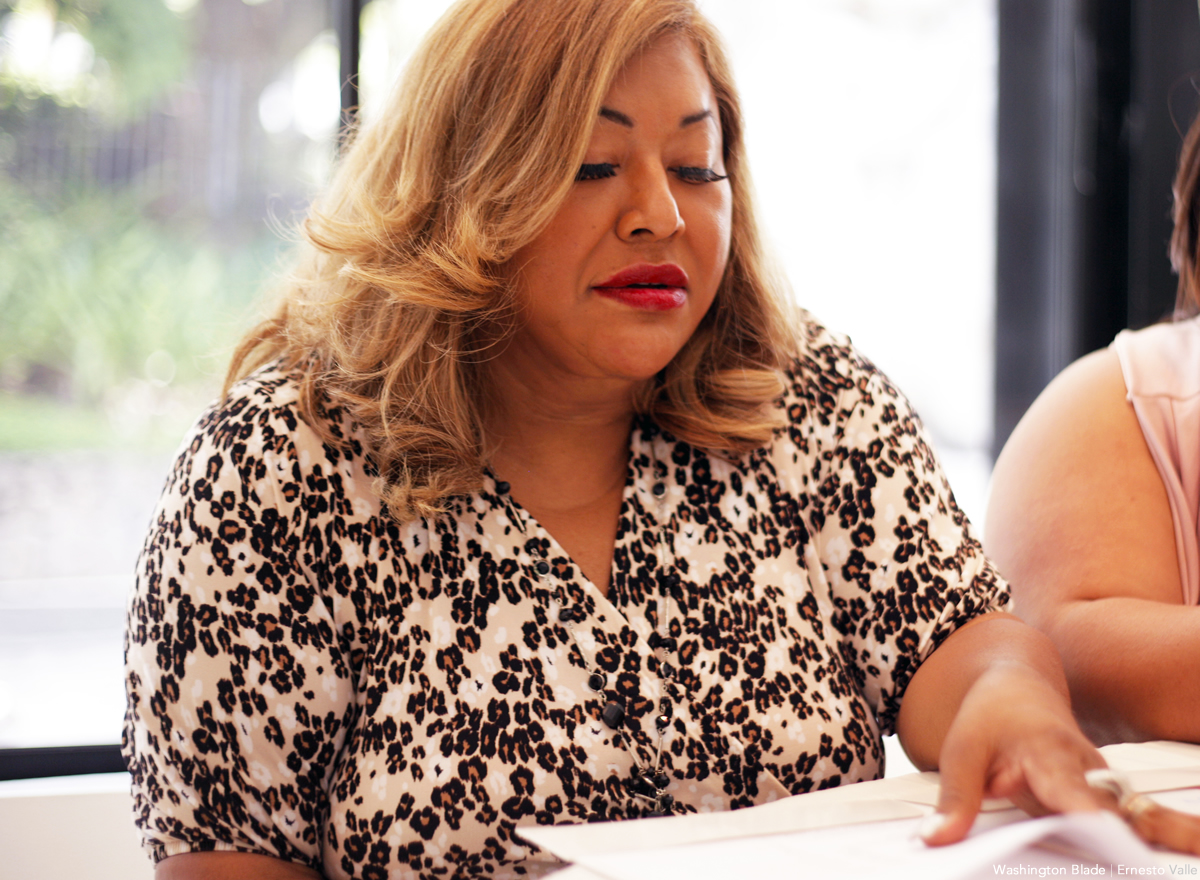
A federal judge on Jan. 13 sentenced Ruby Corado, the founder and former executive director of the now closed D.C. LGBTQ community services organization Casa Ruby, to 33 months of incarceration for a charge of wire fraud to which she pleaded guilty in July 2024.
U.S. District Court Judge Trevor M. McFadden handed down the sentence that had been requested by prosecutors with the Office of the U.S. Attorney for the District of Columbia after Corado’s sentencing had been postponed six times for various reasons.
The judge also sentenced her to 24 months of supervised release upon her completion of incarceration.
In addition to the sentence of incarceration, McFadden agreed to a request by prosecutors to hold Corado responsible for “restitution” and “forfeiture” in the amount of $956,215 that prosecutors have said she illegally misappropriated from federal loans obtained by Casa Ruby.
The charge to which she pleaded guilty is based on allegations that she diverted at least $180,000 “in taxpayer backed emergency COVID relief funds to private offshore bank accounts,” according to court documents.
Court records show FBI agents arrested Corado on March 5, 2024, at a hotel in Laurel, Md., shortly after she returned to the U.S. from El Salvador, where authorities say she moved in 2022. Prosecutors have said in charging documents that she allegedly fled to El Salvador, where she was born, after “financial irregularities at Casa Ruby became public,” and the LGBTQ organization ceased operating.
Shortly after her arrest, another judge agreed to release Corado into the custody of her niece in Rockville, Md., under a home detention order. But at an Oct. 14, 2025, court hearing at which the sentencing was postponed after Corado’s court appointed attorney withdrew from the case, McFadden ordered Corado to be held in jail until the time of her once again rescheduled sentencing.
Her attorney at the time, Elizabeth Mullin, stated in a court motion that her reason for withdrawing from the case was an “irreconcilable breakdown in the attorney-client relationship.”
Corado’s newly retained attorney, Pleasant Brodnax, filed a 25-page defense Memorandum in Aid of Sentencing on Jan. 6, calling for the judge to sentence Corado only to the time she had already served in detention since October.
Among other things, Brodnax’s defense memorandum disputes the claim by prosecutors that Corado improperly diverted as much as $956,215 from federally backed loans to Casa Ruby, saying the total amount Corado diverted was $200,000. Her memo also states that Corado diverted the funds to a bank account in El Salvador for the purpose of opening a Casa Ruby facility there, not to be used for her personally.
“Ms. Corado has accepted responsibility for transferring a portion of the loan disbursements into another account she operated and ultimately transferring a portion of the loan disbursements to an account in El Salvador,” the memo continues.
“Her purpose in transferring funds to El Salvador was to fund Casa Ruby programs in El Salvador,” it says, adding, “Of course, she acknowledges that the terms of the loan agreement did not permit her to transfer the funds to El Salvador for any purpose.”
In his own 16-page sentencing recommendation memo, Assistant U.S. Attorney John Borchert, the lead prosecutor in the case, said Corado’s action amounted at the least to fraud.
“The defendant and Casa Ruby received no less than $1.2 million in taxpayer backed funds during the COVID-19 global health crisis,” he memo states. “But rather than use those funds to support Casa Ruby’s mission as the defendant promised, the defendant further contributed to its demise by unlawfully transferring no less than $180,000 of these federal emergency relief funds into her own private offshore bank accounts,” it says.
“Then, when media reports suggested the defendant would be prosecuted for squandering Casa Ruby’s government funding, she sold her home and fled the country,” the memo states. “Meanwhile, the people who she had promised to pay with taxpayer-backed funds – her employees, landlord, and vendors – were left behind flat broke.”
A spokesperson for the U.S. Attorney’s office and Corado’s attorney didn’t immediately respond to a request from the Washington Blade for comment on the judge’s sentence.
“Ms. Corado accepts full responsibility for her actions in this case,” defense attorney Brodnax says in her sentencing memo. “She acknowledges the false statements made in the loan applications and that she used some of the money outside the United States,” it says.
“However, the money was still utilized for the same purpose and intention as the funds used in the United States, to assist the LGBTQ community,” it states. “Ms. Corado did not use the money to buy lavish goods or fund a lavish lifestyle.”
Brodnax also states in her memo that as a transgender woman, Corado could face abuse and danger in a correctional facility where she may be sent if sentenced to incarceration.
“Ruby Corado committed a crime, she is now paying the price,” said D.C. LGBTQ rights advocate Peter Rosenstein. “While it is sad in many ways, we must remember she hurt the transgender community with what she did, and in many ways they all paid for her crime.”
District of Columbia
Kennedy Center renaming triggers backlash
Artists who cancel shows threatened; calls for funding boycott grow

Efforts to rename the Kennedy Center to add President Trump’s name to the D.C. arts institution continue to spark backlash.
A new petition from Qommittee , a national network of drag artists and allies led by survivors of hate crimes, calls on Kennedy Center donors to suspend funding to the center until “artistic independence is restored, and to redirect support to banned or censored artists.”
“While Trump won’t back down, the donors who contribute nearly $100 million annually to the Kennedy Center can afford to take a stand,” the petition reads. “Money talks. When donors fund censorship, they don’t just harm one institution – they tell marginalized communities their stories don’t deserve to be told.”
The petition can be found here.
Meanwhile, a decision by several prominent musicians and jazz performers to cancel their shows at the recently renamed Trump-Kennedy Center in D.C. planned for Christmas Eve and New Year’s Eve has drawn the ire of the Center’s president, Richard Grenell.
Grenell, a gay supporter of President Donald Trump who served as U.S. ambassador to Germany during Trump’s first term as president, was named Kennedy Center president last year by its board of directors that had been appointed by Trump.
Last month the board voted to change the official name of the center from the John F. Kennedy Memorial Center For The Performing Arts to the Donald J. Trump And The John F. Kennedy Memorial Center For The Performing Arts. The revised name has been installed on the outside wall of the center’s building but is not official because any name change would require congressional action.
According to a report by the New York Times, Grenell informed jazz musician Chuck Redd, who cancelled a 2025 Christmas Eve concert that he has hosted at the Kennedy Center for nearly 20 years in response to the name change, that Grenell planned to arrange for the center to file a lawsuit against him for the cancellation.
“Your decision to withdraw at the last moment — explicitly in response to the Center’s recent renaming, which honors President Trump’s extraordinary efforts to save this national treasure — is classic intolerance and very costly to a non-profit arts institution,” the Times quoted Grenell as saying in a letter to Redd.
“This is your official notice that we will seek $1 million in damages from you for this political stunt,” the Times quoted Grenell’s letter as saying.
A spokesperson for the Trump-Kennedy Center did not immediately respond to an inquiry from the Washington Blade asking if the center still planned to file that lawsuit and whether it planned to file suits against some of the other musicians who recently cancelled their performances following the name change.
In a follow-up story published on Dec. 29, the New York Times reported that a prominent jazz ensemble and a New York dance company had canceled performances scheduled to take place on New Year’s Eve at the Kennedy Center.
The Times reported the jazz ensemble called The Cookers did not give a reason for the cancellation in a statement it released, but its drummer, Billy Hart, told the Times the center’s name change “evidently” played a role in the decision to cancel the performance.
Grenell released a statement on Dec. 29 calling these and other performers who cancelled their shows “far left political activists” who he said had been booked by the Kennedy Center’s previous leadership.
“Boycotting the arts to show you support the arts is a form of derangement syndrome,” the Times quoted him as saying in his statement.
-

 Iran5 days ago
Iran5 days agoGrenell: ‘Real hope’ for gay rights in Iran as result of nationwide protests
-

 Virginia4 days ago
Virginia4 days agoVa. Senate committee approves resolution to repeal marriage amendment
-

 Movies4 days ago
Movies4 days agoRise of Chalamet continues in ‘Marty Supreme’
-

 Opinions4 days ago
Opinions4 days agoZach Wahls stood up for us, now let’s stand with him



















